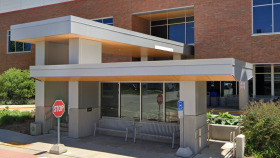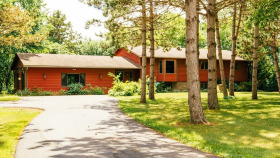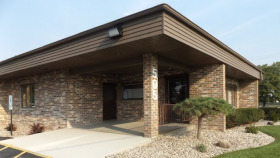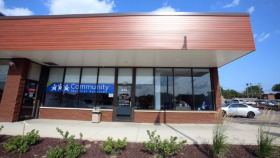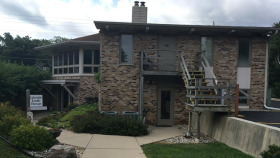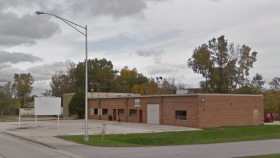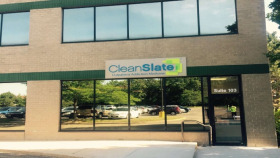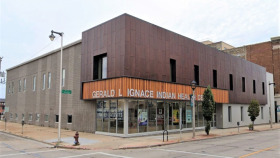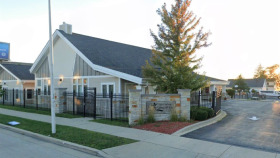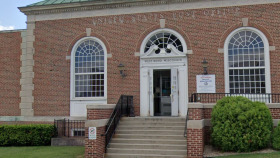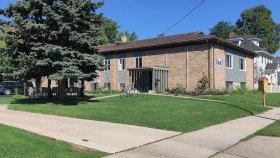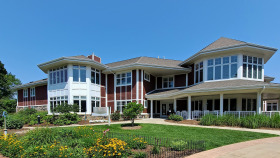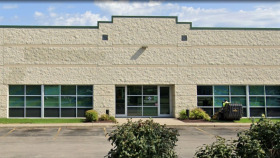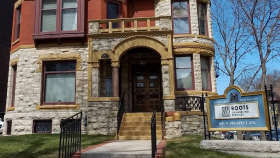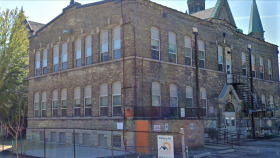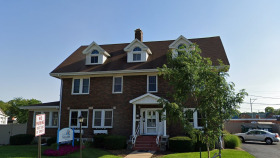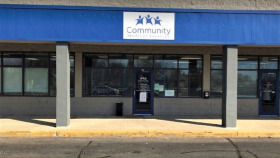Expert Insights
Overdose deaths in Wisconsin are on the rise, and fentanyl overdoses are setting records each year. Officials are trying to reduce these numbers with Wisconsin’s opioid settlement funds. But only one million of the initial $31 million went to prevention and intervention programs. Meanwhile, funds are buying vending machines stocked with fentanyl testing strips and gun locks. Clearly, this community needs more than vending machines that are likely to be unused or vandalized. Wisconsin is largely rural, and we know rural areas are underserved when it comes to intervention programs. Let’s use this money to make sure effective programs are available statewide.
~ Kerry Nenn
How Much Does Drug Rehab Cost in Wisconsin?
Wisconsin is ranked 19th nationwide in terms of addiction treatment affordability, with an average cost of drug and alcohol rehab of $56,625 (without insurance).
- Medical detox is the most expensive, with an average cost of $139,601
- Long-term inpatient drug rehab in Wisconsin costs an average of $49,968
- Outpatient addiction treatment in Wisconsin costs an average of $8,303
- Outpatient methadone treatment is the most affordable, with an average cost of $7,377
The cost of alcohol and drug rehab in Wisconsin depends on several different factors. Of course, the type of treatment program needed will arguably be the most prominent factor when it comes to pricing.
When it comes to figuring out a budget for potential Wisconsin drug rehabs, here are the things you’ll need to consider:
- The type of treatment you’ll need: Will you need residential treatment or outpatient care?
- The length of the treatment program: This can range anywhere from 30 to 90 days—longer if your substance use condition is severe.
- The amenities that are offered: Amenities range from necessities to luxury-style accommodations, which can alter costs significantly.
- The location: Costs may vary significantly from the mountains, beaches, or metropolitan areas.
- Insurance coverage: Whether or not you have insurance that covers drug and alcohol rehab in Wisconsin.
- Financial assistance: Whether or not you’re eligible for state funding, scholarships, or financing plans.
Keep in mind that cost doesn’t have to be a barrier to high-quality addiction treatment. There’s a drug and alcohol rehab in Wisconsin for all levels of income; you just have to do a little digging to find them.
How to Pay for Drug Rehab in Wisconsin
As of 2024, there were over 330 drug rehab facilities across the state of Wisconsin. These facilities accept several payment methods. Of those treatment facilities, the following numbers reflect how many accept their respective payment methods:
Poverty, homelessness, and unemployment can make addiction treatment feel impossible, but there are free and low-cost options that make addiction treatment accessible. In addition to free treatment opportunities, you have other options that can help reduce your expenses, including deductibles, copays, and coinsurance.
Private Pay + Insurance
Two federal laws regulate coverage for mental health conditions and substance use disorders, with some exceptions. Many commercial health insurance policies cover these benefits as do all health insurance policies offered in the Health Insurance Marketplace. It is crucial to verify your health insurance coverage before beginning treatment.
Some people choose private pay or self pay instead of using their commercial health insurance policy. This helps reduce the potential your employer will discover you received addiction treatment. Some treatment centers offer payment plans to help reduce your immediate cost. Following is a list of health insurance providers in Wisconsin.
- Anthem Blue Cross and Blue Shield
- Aspirus Health Plan
- Common Ground Healthcare Cooperative
- Dean Health Plan, Inc.
- Group Health Cooperative of South Central Wisconsin
- HealthPartners
- Medica
- MercyCare Health Plans
- Molina Healthcare
- Network Health
- Quartz
- Security Health Plan
- Together with CCHP
- UnitedHealthcare
Medicaid
Medicaid is a state and federally funded health program for individuals who meet the financial criteria. Eligibility requirements include being a U.S. citizen or qualified immigrant, having a current Social Security number, being a resident of Wisconsin, and meeting income level requirements. According to the Wisconsin Examiner, the state is one of 10 states that hasn’t accepted the full expansion of the Medicaid program. This means residents must meet stricter income eligibility requirements.
ACCESS is the Medicaid program in Wisconsin and is administered by the Wisconsin Department of Health Services. The ACCESS program helps you find financial help for more than Medicaid. Benefits also include child care costs, help finding a job, or building your career skills.
Medicare
Medicare is a federally funded health program designed primarily for men and women over age 65. Some people with specific health conditions who are younger may also qualify. Original Medicare is in two parts. Part A covers inpatient care and Part B covers outpatient care and doctor’s visits. Medicare meets the qualifications for coverage of essential healthcare services, including mental health and substance use disorder treatment.
Roughly 1.27 million people living in Wisconsin are enrolled in Medicare and nearly 55% are enrolled in Medicare Advantage plans. Medicare Advantage plans are also called Part C. They are premium based, managed care policies sold by private health insurance companies. The policies coordinate care between Original Medicare Parts A and B, and sometimes offer additional benefits that include coverage for substance use disorders and mental health conditions.
Military Insurance
The U.S. Military provides healthcare programs for active duty and retired service members, their families, National Guard, and Reserve members and their families. The insurance program is called TRICARE and it coordinates the healthcare resources of the military health system, including hospitals and clinics within the Veterans Administration and a network of civilian facilities and healthcare professionals.
TRICARE provides healthcare worldwide to military personnel and veterans. To keep this organized, the program manages healthcare in three regions. Two of the regions are located in the U.S. Wisconsin is found in the East Region and managed by Humana Military. Military personnel may also qualify for VA health care coverage, which also includes treatment for substance use disorder.
Tribal Funding and Programs
There are 11 federally recognized tribes within the Wisconsin border and several other non-federally recognized tribes. Each has a government to government relationship with the state. The Substance Abuse and Mental Health Services Administration provides Tribal Opioid Response Grants, including tribes in Wisconsin. The grants are used to provide treatments, develop prevention programs, and support recovery services using culturally competent programs.
According to Wisconsin Grant Watch, there are 45 Wisconsin grants for substance abuse treatment and prevention within the state, 10 of which are used for tribal entities to support substance abuse treatment, recovery, and education.
Other Low-Cost Options
Free rehabs in Wisconsin can help lower your expenses and make addiction treatment more accessible. Several other low-cost options can also help, including private loans from banks or friends and family, which offer the quickest way to receive treatment. Bank loans are typically more confidential, but loans from friends and family usually have a lower interest rate and a more agreeable payment plan.
Consider addiction treatment centers that offer payment plans and sliding scale fees. Most treatment centers that offer these options require documentation to prove your income level and ability to pay. Local businesses and organizations may offer grants and scholarships to help reduce your expenses and nonprofit faith-based and community-based programs may offer low or no fees. The options available will vary depending on geographical location and the treatment center.
Free Addiction Treatment Resources in Wisconsin
Addiction treatment options in low cost and free rehabs in Wisconsin usually include inpatient programs, outpatient rehab, medical detox, and aftercare programs to help support sobriety and sustainable recovery. Low cost and free substance abuse treatment can be supported by state and federal funding, non-profit organizations, and local community organizations.
Alcohol and drug rehab is not a luxury. Instead, achieving sobriety and living a productive life is necessary. While it can feel overwhelming to seek financial assistance, the cost of substance abuse can be far higher when you consider the costs of the drug, damaged relationships, unemployment, and possible jail time.
The differences between luxury rehab centers and low cost and free addiction treatment centers are primarily the environment and amenities. Both addiction centers offer similar types of treatment options. Luxury treatment centers may include on site exercise equipment, private rooms, and a lower staff to patient ratio.
According to the National Center for Drug Abuse Statistics, there are over 300 active substance abuse clinics in Wisconsin that treat over 25,000 people each year. Free and low cost drug rehab in Wisconsin typically offers inpatient and outpatient care that includes evidence based treatment in individual, group, and family therapies.
Many treatment centers also provide life skills training and relapse prevention training to teach you how to recognize and manage triggers, develop coping strategies, and create a relapse prevention program that fits your lifestyle.
Veterans Outreach and Recovery Program
The program connects veterans of the U.S. military with community services to support treatment for mental health conditions and substance abuse. The staff also helps with financial assistance, housing, and employment.
Elevate
The program offers assistance to individuals and families who need help to address substance use and mental health conditions. The help includes education and advocacy, and help with young people to get referrals, support, and mentoring.
Safe & Sound
The program provides a comprehensive response to crime and violence to improve safety in neighborhoods. They work with adults, youth, and the criminal justice system to build safe neighborhoods providing help with gun violence, drug prevention, outside lighting, and youth programming.
Center for Independence
The center coordinates the work of four programs, including behavioral health help for homeless individuals living with mental health challenges. Services are available across the age spectrum, including children, youth, adults, and the elderly.
Wisconsin Peer Recovery Centers
The program provides peer support throughout the state delivered by people with life experiences similar to yours. People offer self-help and mutual support to those struggling with mental health and substance use disorders.
Wisconsin Drug Use Statistics
According to the Wisconsin Department of Health Services, alcohol and substance use-related problems are among the most significant public health issues in the state today.1 As of 2020, alcohol use was attributed to at least 53 deaths per 100,000 residents, whereas opioids, including heroin, were attributed to 14.8 deaths, cocaine 3.9 deaths, and methamphetamines two deaths per 100,000 people.1
Here’s an overview of how substance use has increased over the years:1
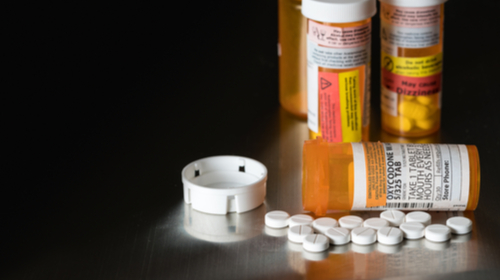
Between 2018 and 2020, opioid-related deaths increased by 45.6%.

In the same period, emergency room visits for opioid-related overdoses increased by 23.6%.

Between 2014 and 2020, there were approximately 1,595 cocaine-related deaths.
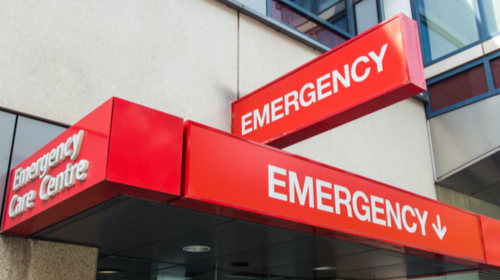
In 2020 alone, there were 397 cocaine-related deaths in Wisconsin.
A total of 16% of all Wisconsin adults engage in binge drinking, ranking third in the nation.
Approximately 59% of all overdose deaths were caused by multiple substances (alcohol, opioids, cocaine, and meth).
Drug Laws in Wisconsin
Wisconsin Marijuana Laws
Medical marijuana is permissible in Wisconsin, but the statute is very limited. Only cannabinoids without a psychoactive effect are allowed and then only to treat seizure disorders. Penalties for possession include six months in jail and up to $1,000 in fines for the first offense. Subsequent offenses are a Class 1 felony.
Prevention and Control of Alcoholism and Drug Dependence
This Wisconsin policy states that people who are dependent on drugs or alcohol and are intoxicated are not subject to criminal prosecution because of the intoxication. Instead, they should be allowed to get treatment to allow them to lead a more productive life.
Wisconsin Cocaine Laws
Possession of, or the attempt to possess, cocaine in Wisconsin carries a penalty of one year in jail and/or up to $5,000 in fines. Cocaine is also regulated at the federal level. The penalties for possession or sale can be severe and typically depend on your prior drug convictions.
Workplace Drug Testing
Federal law requires testing in some safety sensitive industries, but there is not a drug testing statute in Wisconsin. They do require public works projects to do drug testing. However, testing is not required or prohibited by private employers. This means employees who believe the test was illegal must rely on other foundations, such as who was tested or how the test was done.
Resources
- Wisconsin Department of Health Services. (2019, December 13). Substance Use: Drug Overdose Deaths Dashboard.
- U.S. Department of Health and Human Services. (2021, November 10). Mental Health and Substance Use Insurance Help.
- Elliott. (2013, May 13). Grants.
- Mansi Shah, & Huecker, M. R. (2019, June 4). Opioid Withdrawal.
- LGBT Substance Use—Beyond Statistics. (n.d.). SocialWorkToday.
- Wisconsin Legislature: 961.443. (n.d.). CHAPTER 961 Unform Controlled Substances Act.
- Wisconsin Department of Corrections Division of Community Corrections. (n.d.). AD 21-03 Use of Naloxone.pdf.







